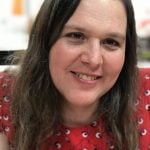Over 100 organizations, including HRC and GLAAD, have signed onto a letter from the National LGBT Cancer Network warning that coronavirus may present a higher risk for LGBTQ communities in the US.
A coalition of LGBTQ advocacy and support organizations is warning that LGBTQ communities in the United States may face elevated risk from the COVID-19 coronavirus outbreak, and suggesting steps health care providers and media outlets can take to help minimize disparity. Over 100 different LGBTQ organizations have signed onto the letter, which was initiated by six organizations: the National LGBT Cancer Network, GLMA Health Professionals Advancing LGBTQ Equality, Whitman-Walker Health, SAGE, New York Transgender Advocacy Group, and National Queer Asian Pacific Islander Alliance.
“As the media and health communities are pushed into overdrive about COVID-19, we need to make sure the most vulnerable among us are not forgotten,” said Dr. Scout, deputy director of the National LGBT Cancer Network, in a statement. “Our smoking rates alone make us extremely vulnerable, and our access to care barriers only make a bad situation worse.”
The letter lays out three factors that give the LGBTQ community an increased vulnerability to the coronavirus. The first is smoking. “The LGBTQ+ population uses tobacco at rates that are 50% higher than the general population,” states the letter, citing multiple surveys of tobacco use in the United States. “COVID-19 is a respiratory illness that has proven particularly harmful to smokers.”
The second factor is that LGBTQ people have higher rates of HIV and cancer. “A greater number of us may have compromised immune systems, leaving us more vulnerable to COVID-19 infections,” states the letter.
Finally, there is the most damning factor — the continued discrimination LGBTQ people face in the United States health care system. “LGBTQ+ people continue to experience discrimination, unwelcoming attitudes, and lack of understanding from providers and staff in many health care settings,” states the letter. “As a result, many are reluctant to seek medical care except in situations that feel urgent – and perhaps not even then.”

The letter also mentions the more than three million LGBTQ elders currently living in the United States as a group with particularly elevated risk. “LGBTQ+ elders are already less likely than their heterosexual and cisgender peers to reach out to health and aging providers, like senior centers, meal programs, and other programs designed to ensure their health and wellness, because they fear discrimination and harassment,” states the letter. “The devastating impact of COVID-19 on older people – the current mortality rate is at 15% for this population – makes this a huge issue for the LGBTQ+ communities as well.”
The letter also offers ten different tips for health care providers and media organizations in order to ensure that LGBTQ communities are properly served during the COVID-19 outbreak. These range from including graphic representation of LGBTQ community members in graphic advertisements and offering information to help LGBTQ community members experiencing symptoms find LGBTQ-friendly providers to ensuring that sexual orientation and gender identity information is collected in demographic surveys related to the disease and ensuring that the most vulnerable members of the LGBTQ community are taken into account, including, the letter states, “our elders, bi people, and black and brown trans and gender nonconforming/nonbinary people.”
“As an organization dedicated to the health and well-being of LGBTQ communities, we urge LGBTQ individuals to practice measures recommended by public health experts, such as frequent handwashing, to prevent the spread of this virus,” said GLMA President Scott Nass, MD, MPA, in a statement. “At the same time, like our colleagues who joined the open letter, we call on public health officials to ensure the LGBTQ community is considered and included in the public health response to COVID-19 based on potential risk factors that exist in our community.”
To read the full text of the open letter, and to see the full list of organizations that have signed it, go to cancer-network.org/coronavirus-2019-lgbtq-info.
Top Photo by daniel james on Unsplash



